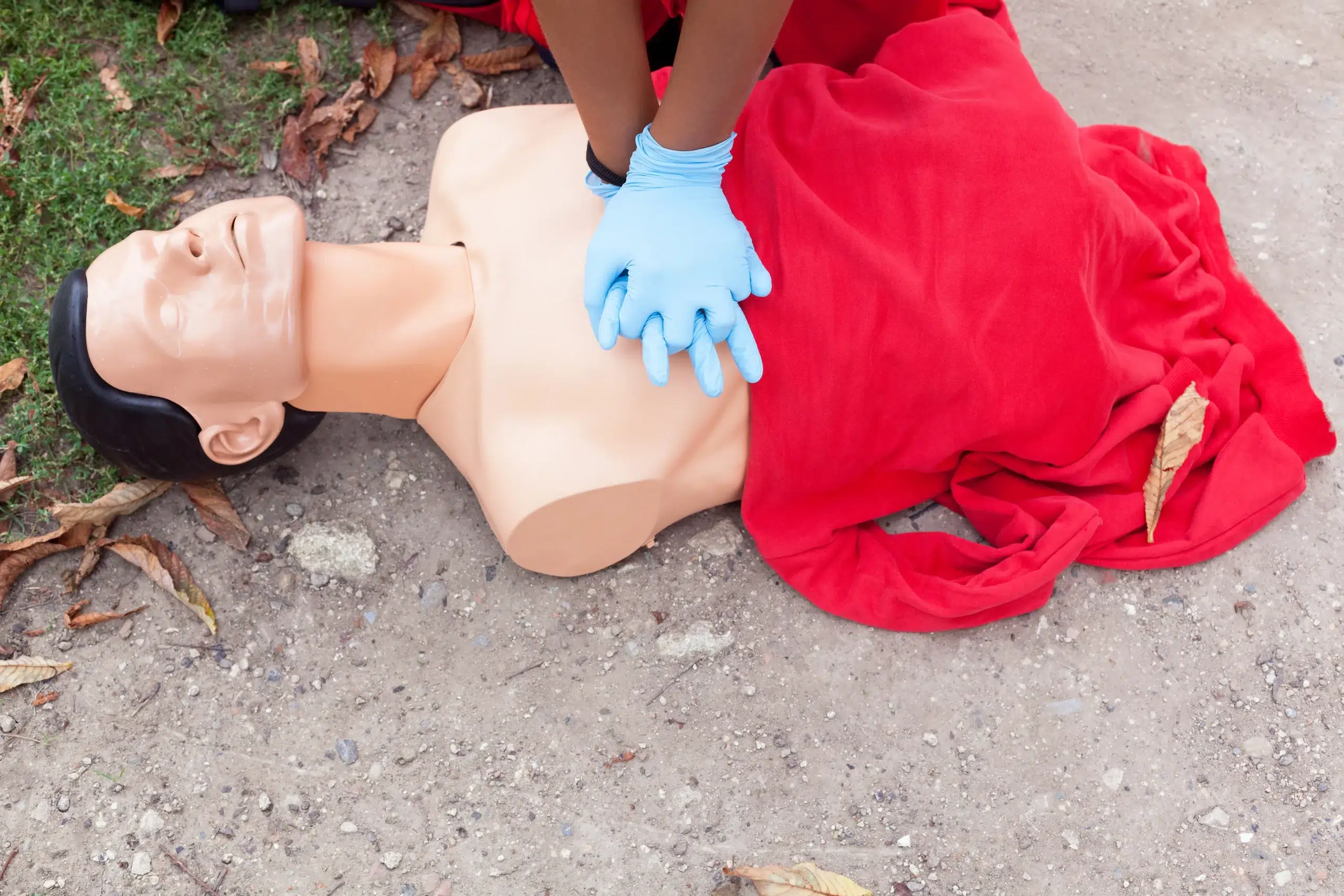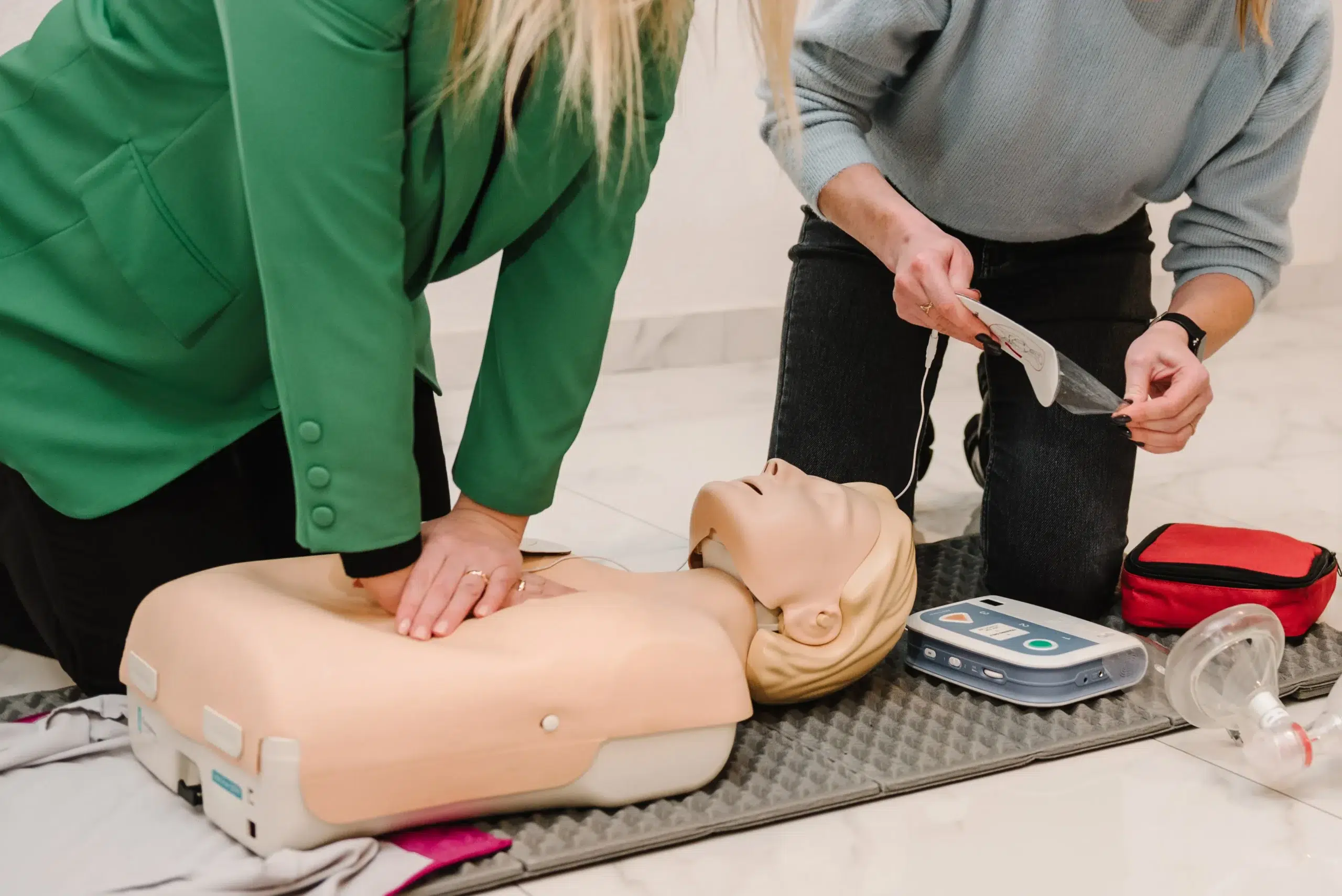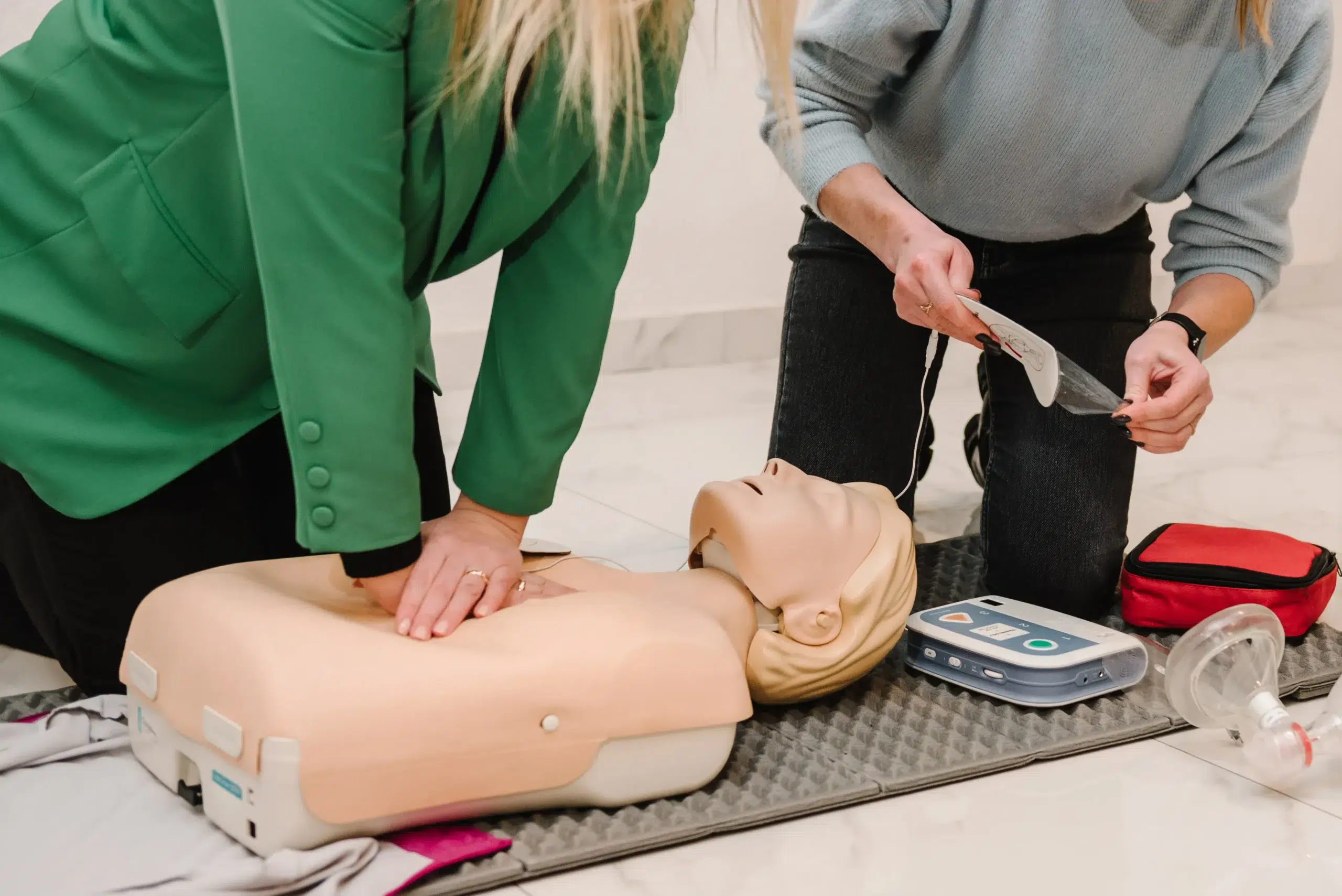Keeping your CPR skills sharp is crucial, especially in healthcare. But let’s face it, traditional CPR classes can be hard to fit into a packed schedule. RQI offers a game-changing solution with short, regular practice sessions that reinforce your skills and boost your confidence. If you’re searching for rqi in Orangevale, this guide is for you. We’ll cover everything from the basics of RQI to its benefits, costs, and where to find training in your area. We’ll also compare RQI to traditional CPR and explain how its unique approach can help you become a more effective and confident lifesaver.
Key Takeaways
- RQI provides more frequent practice: Instead of infrequent classroom sessions, RQI emphasizes short, regular practice using simulation technology and real-time feedback, leading to better skill retention and improved performance in emergencies.
- RQI builds confidence for real-life situations: Consistent practice and personalized feedback create a sense of competence, empowering individuals to act decisively in emergencies, leading to better patient outcomes.
- RQI offers flexible and cost-effective training: The subscription-based model spreads the cost over time, making it more budget-friendly than traditional CPR courses, while offering flexible online and in-person options to fit various learning styles and schedules.
What is RQI? How Does It Differ from Traditional CPR?
What is RQI?
RQI (Resuscitation Quality Improvement) represents a significant shift in how we approach CPR training. It’s designed to offer a more modern, flexible, and effective way to learn and maintain these life-saving skills. Instead of infrequent, lengthy courses, RQI focuses on short, regular practice sessions that fit easily into your schedule. This approach helps healthcare providers and other professionals keep their skills sharp and their confidence high. You can learn more about the program overview from RQI Partners.
Key Features: Simulation and Real-Time Feedback
One of the things that sets RQI apart is its use of simulation technology. Mobile simulation stations allow participants to practice realistic scenarios and receive immediate feedback on their performance. This real-time coaching helps you refine your technique and improve your skills with each attempt. For a deeper dive into the specifics, check out the RQI FAQs.
RQI vs. Traditional CPR
Traditional CPR training typically involves classroom sessions and infrequent practice. This can lead to skill decay over time, making it harder to recall and apply these skills effectively in a real emergency. RQI addresses this challenge by emphasizing low-dose, high-frequency practice. This consistent reinforcement helps you retain your skills and build muscle memory, so you’re better prepared to respond confidently when it matters most. The American Heart Association offers more information on how RQI differs from traditional CPR.
RQI Benefits for Individuals and Healthcare Organizations
RQI training offers numerous advantages for both individuals and healthcare organizations. From improved skills and confidence to cost-effectiveness and continuous learning, let’s explore the key benefits of incorporating RQI into your professional development.
Improve Skill Retention and Performance
Traditional CPR training often involves lengthy sessions followed by long periods without practice. This can lead to skill decay and decreased performance in real-life emergencies. RQI addresses this through short, regular practice sessions using simulation technology and real-time feedback to reinforce skills and improve muscle memory. Studies show this method significantly improves skill retention and performance compared to traditional CPR training. This consistent practice ensures proficiency in essential CPR techniques.
Build Confidence in Emergencies
Knowing you can effectively respond in a critical situation is invaluable. RQI builds confidence through ongoing practice and personalized feedback. Frequent training creates a sense of familiarity and competence, empowering individuals to act decisively in emergencies. Student testimonials highlight the increased confidence gained through RQI, allowing them to apply their skills with assurance when it matters most. This increased confidence translates to better patient outcomes and a more positive work environment.
Learn Continuously for Long-Term Proficiency
RQI promotes continuous learning through its flexible, subscription-based model. Instead of infrequent, one-time courses, RQI provides ongoing access to training materials and resources. This ongoing training emphasizes skill mastery through consistent practice and feedback, ensuring long-term proficiency. The subscription model lets learners refresh their knowledge and skills regularly, staying current with the latest CPR guidelines.
Save with a Cost-Effective Subscription
While investing in training is essential, RQI offers a cost-effective solution, especially for healthcare organizations. The subscription model spreads the cost over time, making it more budget-friendly than traditional CPR courses. Cost analyses demonstrate the potential cost savings, particularly for larger organizations with many employees needing certification. This allows for efficient resource allocation while maintaining high CPR competency among staff.
Find RQI Training in Orangevale
If you’re looking for RQI training in Orangevale, you have several good options. The area offers a range of providers and learning formats, making it easy to find the right fit for your needs.
Local RQI Course Providers
Citrus Heights CPR Classes
Citrus Heights CPR Classes offers a convenient and affordable way to earn your RQI certification. They have a low-price guarantee and offer group discounts, with courses starting around $59.95. This makes them a practical choice for both individuals and organizations. Learn more about their RQI classes.
Safety Training Seminars
Safety Training Seminars focuses on delivering accessible and affordable American Heart Association (AHA) certified courses, including RQI, throughout Northern California. They serve the Orangevale area, making them another convenient local option for healthcare providers seeking RQI certification.
RQI Partners
For more information on resuscitation education, explore RQI Partners. They dedicate their work to improving resuscitation training and support for healthcare providers, with the goal of improving patient survival rates from cardiac arrest. Learn more about their mission.
Online vs. In-Person RQI
RQI offers flexible learning options, including both online and in-person training. The RQI program is designed for quarterly training, though compliance is at the discretion of the participating hospital. The American Heart Association highlights RQI’s innovative approach, using various learning tools and emphasizing skills mastery through low-dose, high-frequency training and performance feedback. Think about which format best suits your learning style and schedule. Online learning offers flexibility, while in-person training provides hands-on practice and direct interaction with an instructor.
Your RQI Learning Experience: What to Expect
So, you’re signed up for RQI training—great! Here’s a glimpse into what your learning journey will look like. We’ll cover the course structure, the technology used, and how you’ll be assessed.
Course Structure and Flexible Learning
RQI offers a flexible learning experience designed to fit even the busiest schedules. Short, frequent refresher sessions make it easier to stay on top of your training. This approach also improves CPR competence and skill retention, building confidence for emergency situations. You can integrate these short training sessions into your workday, making skill maintenance sustainable. The RQI program anticipates quarterly training for consistent knowledge and technique refreshers.
Technology and Equipment in Training
RQI training uses innovative technology to enhance learning. The RQI Simulation Station provides real-time, audiovisual feedback during hands-on skills sessions. This immediate feedback helps refine your technique and develop high-quality CPR skills. This self-guided practice with the simulation station allows you to learn at your own pace and focus on areas for improvement.
Assessment and Certification
The RQI assessment process sets you up for success. You’ll receive structured feedback throughout the program, increasing your chances of completing the skill modules. This feedback helps you understand your strengths and weaknesses, allowing you to focus on mastering essential skills. Studies show the RQI model improves CPR skills, confidence, and performance in compressions and ventilations.
RQI Costs and Value in Orangevale
Price Range and Cost Factors
The American Heart Association’s RQI program uses a subscription model instead of a one-time fee. This helps organizations budget more effectively and keeps their staff’s skills fresh. The total annual cost depends on the number of learners and the modules you choose. For example, RQI training for 350 learners might cost $14,000 annually, at $40 per learner. This flexible model allows organizations to scale their training as needed. This Joint Commission Journal article offers further insights into RQI program structure and costs.
Discounts and Promotions
Providers like Safety Training Seminars focus on affordable, high-quality training. They understand cost is a factor, so they frequently offer discounts and promotions to make RQI training more accessible. This commitment to affordability helps even small organizations invest in this essential training. For those in the San Jose area, this RQI guide offers helpful information on pricing and availability. Check with your local providers for current discounts and promotions in your area. Citrus Heights CPR Classes also offers group discounts which can help make training more affordable.
Long-Term Value for You and Your Organization
Investing in RQI improves provider skills and contributes to better patient outcomes. More frequent training in Basic Life Support (BLS) and Advanced Life Support (ALS) benefits providers likely to face cardiac arrest situations. The RQI program’s emphasis on skills mastery through low-dose, high-frequency training and feedback creates a more competent and confident team. This American Heart Association RQI overview details the program’s benefits. This investment in training strengthens staff confidence and competence, ultimately benefiting both the organization and the patients they serve.
Who Should Take RQI Training?
RQI training isn’t just for a select few—it’s a valuable skill set for anyone who wants to be prepared in a medical emergency. Whether you’re a seasoned healthcare professional or simply want to learn life-saving skills, RQI offers a flexible and effective way to gain and maintain CPR proficiency. Let’s take a closer look at the different groups who can benefit from RQI training.
Healthcare Professionals and Medical Staff
For healthcare professionals and medical staff, maintaining excellent CPR skills is crucial. RQI training uses the latest American Heart Association guidelines and realistic simulations to reinforce high-quality CPR techniques. Doctors, nurses, and other medical personnel can use RQI to stay updated on best practices and ensure they’re ready to respond effectively in critical situations. This training is essential for maintaining proficiency and providing the best possible patient care.
Childcare Providers and Educators
RQI training is also highly relevant for childcare providers and educators. Working with children means being prepared for anything, and having current CPR skills can make all the difference in an emergency. BLS courses teach essential life-saving skills like CPR, AED use, and airway management, empowering childcare professionals and educators to respond confidently and effectively if a child experiences a medical crisis.
Emergency Response Teams
Emergency response teams are on the front lines of medical emergencies, and their CPR skills need to be sharp. The RQI program is designed to improve CPR quality and increase survival rates after sudden cardiac arrest. This specialized training equips emergency responders with the skills and confidence they need to handle high-pressure situations and deliver effective CPR in the field. RQI helps ensure these teams are always ready to provide critical care when it matters most.
General Public and Caregivers
RQI training isn’t limited to professionals—it’s a valuable resource for the general public and caregivers as well. Knowing CPR can empower you to act quickly and confidently in an emergency, potentially saving a life. The RQI Program is designed to be flexible and accessible, making it easier than ever for anyone to learn these essential life-saving skills. Whether you’re a parent, grandparent, or simply someone who wants to be prepared, RQI can provide you with the knowledge and skills you need to make a difference.
Prepare for Your RQI Course
Getting ready for your RQI course doesn’t require a ton of prep work, but understanding the process and how it differs from traditional CPR training can be helpful. This section covers what you need to know before your first session.
Prerequisites and Materials
RQI courses are designed to be accessible, and there aren’t typically strict prerequisites. Because RQI focuses on high-frequency practice and skill maintenance, it uses innovative tools like mobile simulation stations. These stations allow for flexible learning and assessment of both cognitive and psychomotor skills. You won’t need to gather any materials beforehand—everything is usually provided on-site.
Time Commitment and Scheduling
One of the biggest advantages of RQI is its flexible scheduling. Instead of lengthy, infrequent training sessions, RQI uses short, quarterly refresher sessions. This approach makes it much easier to fit the training into your busy schedule. Frequent, shorter sessions improve CPR competence and are easier to manage. While the program encourages quarterly participation to maintain proficiency, the specific compliance tracking is often handled by the participating hospital or organization.
Best Practices for Participants
RQI is designed with your success in mind. The program incorporates real-time audiovisual feedback, which coaches you through each skill attempt and helps you improve quickly. This immediate feedback is invaluable for skill development and helps ensure you can complete the assigned modules. Come prepared to practice and engage with the instructors and the technology—you’ll find the experience supportive and designed to build your confidence in performing high-quality CPR. The RQI program aims to support students through the process.
Maintain Your RQI Certification
Keeping your RQI certification current is crucial for providing effective, high-quality CPR. Unlike traditional CPR certification, which requires renewal every two years, RQI uses a low-dose, high-frequency model. This means you’ll engage in shorter, more frequent training to maintain your skills. Let’s break down what that looks like:
Renewal Requirements and Timeframes
RQI certification is typically valid for two years. The program, however, emphasizes ongoing practice and assessment. You’ll refresh your skills and knowledge every quarter through short, targeted training. These sessions reinforce your learning and ensure you’re always ready to respond to a cardiac arrest. This differs from traditional CPR recertification, often involving a single, longer course every two years. For more insights into traditional BLS renewal, see our guide to BLS courses in Orangevale.
Ongoing Learning Opportunities
RQI encourages continuous learning. While the program expects quarterly training, the specific compliance tracking and enforcement are often determined by your employer. This flexibility allows healthcare organizations to tailor the program to their needs and resources. This distributed practice model, discussed in research on low-dose, high-frequency cardiac resuscitation, improves skill retention and overall CPR performance.
Recertification Process
The RQI recertification process involves cognitive and psychomotor skills assessments, often conducted at convenient mobile simulation stations. You’ll complete core skills assessments with feedback, helping you understand your strengths and areas for improvement. Successfully completing these assessments maintains your RQI certification. For more details, refer to the RQI FAQs.
RQI Effectiveness: Reviews and Testimonials
Participant Feedback on Skill Improvement
RQI participants often report noticeable improvements in their CPR skills and confidence. Many appreciate the frequent low-dose, high-frequency training sessions that reinforce their skills and knowledge. The personalized learning experience, tailored to individual needs, helps learners focus on areas where they need the most practice. This targeted approach, combined with real-time feedback during practice, builds proficiency and confidence. This boost in confidence translates to a greater willingness to act quickly and effectively in real-life emergencies.
Healthcare Organization Experiences
Healthcare organizations implementing RQI programs appreciate the structured, consistent approach to CPR training. The program’s flexibility allows organizations to tailor training schedules to fit their staff’s needs, minimizing disruption to patient care. RQI’s emphasis on regular practice and skills maintenance ensures that healthcare providers maintain a high level of competency. This proactive approach to training can lead to improved patient outcomes and a stronger culture of preparedness within the organization. Each organization manages its own compliance tracking and implementation, allowing for customization based on specific needs and resources.
Impact on CPR Quality and Patient Outcomes
Studies suggest a strong correlation between RQI training and improved CPR quality. Providers trained with RQI demonstrate better compression and ventilation skills, leading to more effective CPR delivery. The program’s focus on high-quality CPR performance can significantly impact patient outcomes, increasing the chances of survival during cardiac arrest. By emphasizing consistent practice and feedback, RQI helps providers maintain the skills necessary to deliver effective CPR and improve patient care. This commitment to quality and continuous improvement makes RQI a valuable asset in healthcare settings.
Related Articles
- RQI in Citrus Heights: Your Guide to CPR Training – Citrus Heights CPR Classes
- Why CPR Matters in Healthcare – CPR and First-Aid Training
- The Importance of CPR in Saving Lives
- Common CPR Myths Everyone Should Know
- BLS Classes in Orangevale: Your Guide – Citrus Heights CPR Classes
Frequently Asked Questions
How often do I need to renew my RQI certification?
RQI certification is valid for two years, but the program emphasizes ongoing practice and skill maintenance through quarterly refresher sessions. These shorter, more frequent sessions help reinforce your skills and ensure you’re always prepared.
What if I don’t work in healthcare? Is RQI training still relevant for me?
Absolutely! While RQI is beneficial for healthcare professionals, it’s a valuable skill for anyone. Whether you’re a childcare provider, educator, emergency responder, or simply someone who wants to be prepared for a medical emergency, RQI provides essential life-saving skills.
What can I expect during an RQI training session?
RQI training sessions are short, focused, and designed to fit busy schedules. You’ll use innovative technology like mobile simulation stations to practice your skills and receive real-time feedback. The emphasis is on hands-on practice and personalized learning.
How does RQI differ from traditional CPR training?
RQI focuses on low-dose, high-frequency training, meaning shorter, more regular practice sessions compared to traditional CPR courses. This approach helps improve skill retention and confidence. RQI also incorporates advanced technology and personalized feedback to enhance the learning experience.
How much does RQI training cost?
RQI training typically uses a subscription model, so the cost depends on factors like the number of participants and the specific modules chosen. Many providers offer discounts and promotions, making it a cost-effective way to maintain essential life-saving skills. Contact your local providers for specific pricing information.








